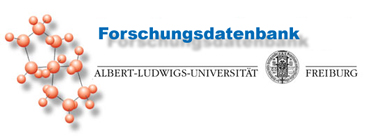| [Zurück zum Forschungsbericht] |
 |

Interaction of SARS-Coronavirus and bunyaviruses with the interferon system
Projektbeschreibung:The fastest responding branch of our immune defense is the interferon (IFN) system. As an immediate response to infection, cells synthesize and secrete alpha/beta IFNs. Uninfected cells throughout the organism sense the IFN molecules and activate a signal transduction chain which results in the synthesis of more than 300 different proteins. These proteins have antiviral activity, inhibiting viral replication at the levels of genome replication, mRNA transcription or translation. Other IFN-induced factors inhibit cell growth or shape the specific immune response. In order to establish infection, viruses circumvent the IFN system. They inhibit IFN synthesis, bind and inactivate secreted IFN molecules, block IFN-activated signaling, or disturb the action of IFN-induced antiviral proteins. We investigate the interaction of the IFN system with selected RNA viruses, namely SARS-coronavirus, the etiologic agent of severe acute respiratory syndrome, and the bunyaviruses. The family Bunyaviridae contains several members that cause encephalitis or hemorrhagic fevers in man e.g. Hantaan, Rift Valley fever, La Crosse and Crimean-Congo hemorrhagic fever viruses. Both SARS-CoV and bunyaviruses are posing an increasing threat to human health, examples of the so-called "Emerging Infections". Our project is aimed at (i) the host-encoded IFN-induced proteins which are responsible for the antiviral effect against SARS-CoV and bunyaviruses, (ii) identifying viral proteins with anti-IFN activity, and (iii) characterizing their IFN-antagonistic mechanism. Our studies may lead to the identification of virulence mechanisms and host defense factors which influence the outcome of infection with these emerging pathogens.Projektlaufzeit:
Weitere Informationen: http://www.ukl.uni-freiburg.de/microbio
Ansprechpartner: PD Dr. Friedemann Weber
Tel: (0761) 2036614
Email: friedemann.weber@uniklinik-freiburg.de
Projektbeginn: 01.12.2000Projektleitung:
Projektende: (unbegrenzt)
Weber, FriedemannKooperationspartner
Albert-Ludwigs-Universität Freiburg
Department für Medizinische Mikrobiologie und Hygiene
Institut für Virologie
Hermann-Herder-Strasse 11
79104 Freiburg
Telefon: +49 761 203 6534
Fax: +49 761 203 6626
http://www.virologie.uniklinik-freiburg.de
Volker Thiel, Kantonsspital St. Gallen/Switzerland. Rune Hartmann and Sören Poludan, University of Aarhus,Denmark.Finanzierung:
- DFG
- Chinesisch-Deutsches Zentraum für Wissenschaften
Projektbezogene Publikationen:
- Melchjorsen J, Jensen SB, Malmgaard L, Rasmussen SR, Weber F, Bowie AG, Matikainen S, Paludan SR: Activation of innate defense against a paramyxovirus is mediated by RIG-I and TLR7 and TLR8 in a cell-type-specific manner. J Virol, 2005; 79: 12944-12951.
- Spiegel M, Pichlmair A, Martínez-Sobrido L, Cros J, García-Sastre A, Haller O, Weber F: Inhibition of beta interferon induction by severe acute respiratory syndrome coronavirus suggests a two-step model for activation of interferon regulatory factor 3 J Virol, 2005; 79: 2079-2086.
- Spiegel M, Pichlmair A, Mühlberger E, Haller O, Weber F: The antiviral effect of interferon-beta against SARS-Coronavirus is not mediated by MxA protein. J Clin Virol, 2004; 30: 211-213.
- Thomas D, Blakqori G, Wagner V, Banholzer M, Kessler N, Elliott RM, Haller O, Weber F: Inhibition of RNA polymerase II phosphorylation by a viral interferon antagonist. J Biol Chem, 2004; 279: 31471-31477.
- Streitenfeld H, Boyd A, Fazakerley JK, Bridgen A, Elliott RM, Weber F: Activation of PKR by Bunyamwera virus is independent of the viral interferon antagonist NSs J Virol, 2003; 77: 5507-5511.
- Weber F., Bridgen A., Fazakerley JK., Streitenfeld H., Kessler N., Randall, RE.: Bunyamwera Bunyavirus nonstructural protein NSs counteracts the induction of alpha/beta interferon J Virol, 2002; 76: 7949-7955.
Aktueller Forschungsbericht